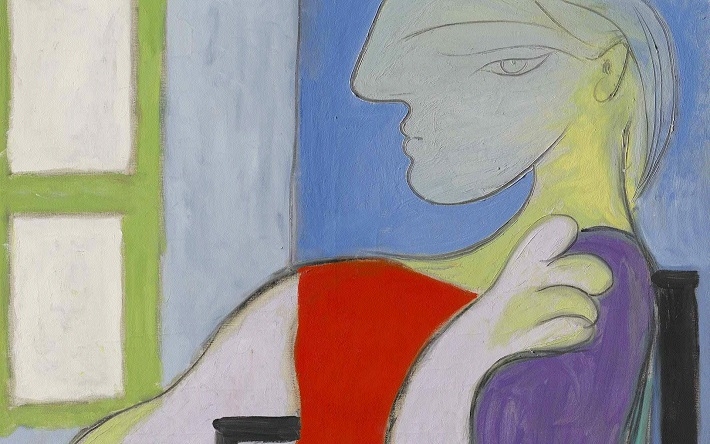Of the truth in the ‘lie’ called art
| Date :07-Sep-2021 |

A piece of art by Pablo Picasso.
By Vijay Phanshikar :
“Art is the lie that reveals the truth.”
- Iconic painter
Pablo Picasso
Of the truth in the ‘lie’ called art A TYPICAL Picasso cynicism, this, but eminently quotable! In its wake, it leaves one nearly spell-bound, in the sense one feels compelled to think about it many times over -- only to continue remaining as confused as one was when the idea began storming the mind. Of course, art is not always an abstraction. It has certain element of concreteness -- in the sense it is an expression of human thought in whatever form and discipline. A poem. An essay. A work of fiction. A painting.
A sculpture. Music in any form. Dance, in any form. All this comes under the category of creation -- getting carved out of human mind, a product of internal conversation the artist carries on generally with himself. How can that internal conversation -- and its outcome -- be unreal or a lie? At best, or at worst, it may be surreal, all right. But how can that be a lie? -- one tends to ask rather indignantly. But then the indignant mind provides an answer as well, though initially unconvincingly -- that art is an illusion, carved out of human imagination. So, as long as art is an illusion, it is a lie, or at least not truth, one may say in Picasso’s advocacy. Yet, the iconic artist concludes his statement saying that art ultimately reveals the truth! But then, let us also not miss another Picasso cynicism --
“Everything you can imagine is real”. How to decipher this double-standard? How to understand this paradox only Pablo Picasso can produce? But was it is not his wife who once said half jokingly, in effect, that whatever Pablo said or did was not to be believed in totality or taken on face value? By that token, the cynicism that art is a great lie that reveals truth ultimately also should be taken with a lot of lingering questions. Never mind the questions that menace individual minds, but factually, everybody -- and not just Pablo Picasso -- believes that art does make the individual travel to certain truth. What truth? Of course, the answer is complex. But the truth Picasso talks about is about how human mind expresses itself in its fullness of imagination.
The truth, thus, is about the human thought refining human culture, elevating it, sublimating it. That is the truth art aims at, one may say. This also suggests an awareness of the Divine, a suggestion that one travels towards the destination that only the divine defines. And only art -- or meditation -- can assist in that endeavour. So, despite being an illusion of sorts, art takes one to certain truth or one of its derivatives. Haven’t we seen countless artists -- singers, painters, sculptors, writers, poets and the like -- sensing the presence of the divine in the final theatre in which their expression blooms fully! Haven’t we sensed how some artists ‘lose’ themselves as they peak in their expressions’ intensity! That is how they go the closest to truth. For, in that state of trance, so to say, they realise the fullness of the divine element that resides within everybody. That realisation, that revelation, that confrontation with self, that conversation within, is actually the zone of truth -- which Pablo Picasso talks about.